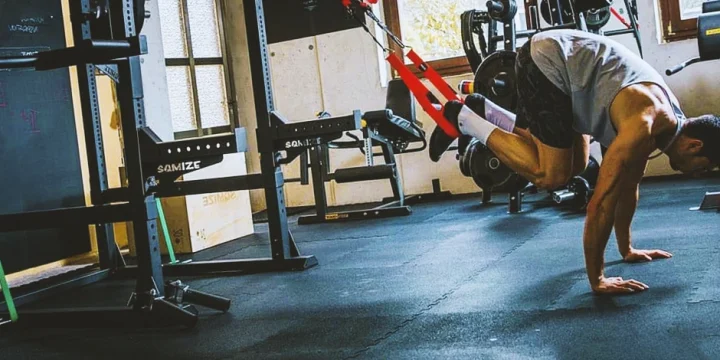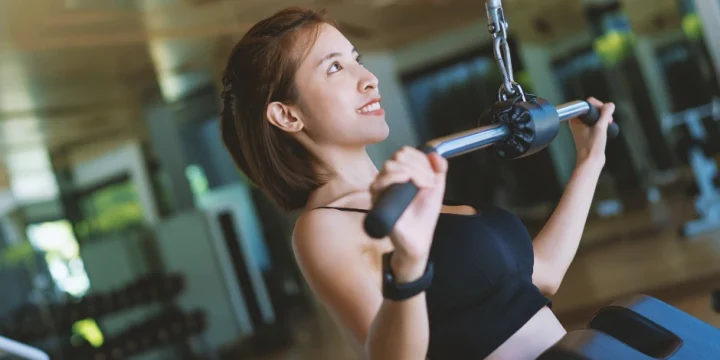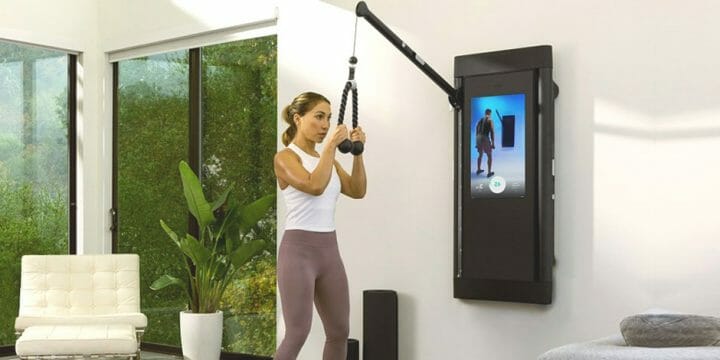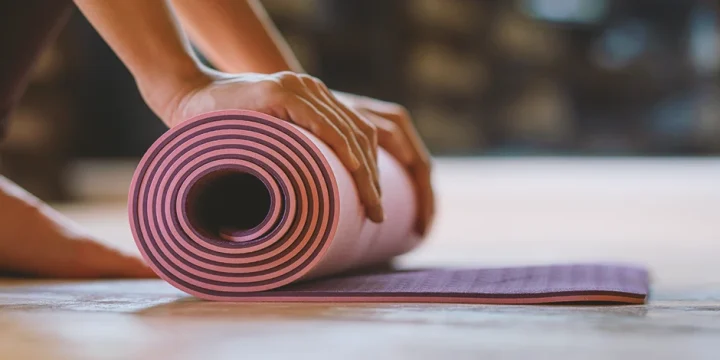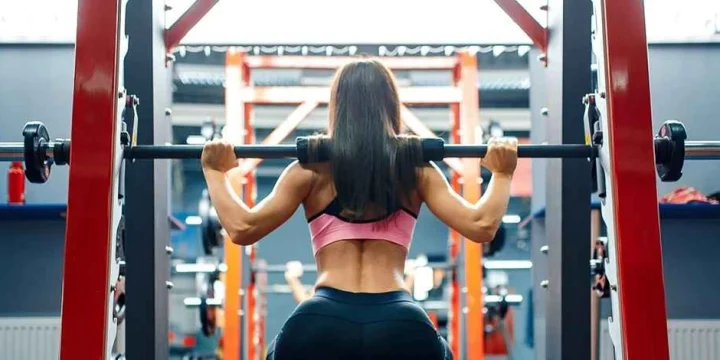Through my extensive experience in health and performance coaching, I've collaborated closely with gym owners and understand the significant effort that goes into maintaining equipment, particularly the cable pulley systems in gym machines.
The cable pulley system eventually wears down, so replacing them with the right type and quality is vital.
And to help our readers find the right type of cable for their cable machines, we spent some time with manufacturers to research the ideal replacements.
Not only will you need the right length, but there are different thicknesses and materials to consider as well.
Quick Summary
- For optimal performance and durability in home gyms, select high-quality steel wire cables with protective plastic coverings to prevent rust and reduce wear.
- Regularly inspect and replace home gym cables when they show wear or reach the end of their recommended lifespan, ensuring safe and effective workouts.
- The American Society of Mechanical Engineers highlights that the hooks at the ends of gym cables endure significant strain and pressure, underscoring the importance of regular checks to prevent them from snapping during a workout.
- From my professional experience and extensive research, I strongly recommend investing in top-quality machines (like the Smith Machines that passed our testing) and ensuring proper maintenance and timely replacement of gym cables for both safety and optimal workout effectiveness.
Which Type of Wire Is Used in Gym Equipment?
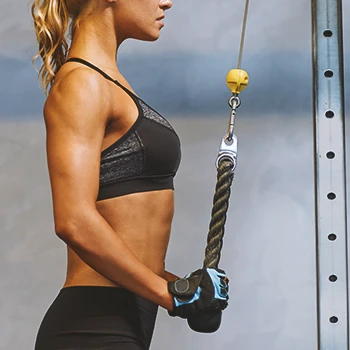
Steel wire is the type of material used for cables in gym equipment.
Not only is this extremely hard-wearing, but considering the humidity in a commercial or home gym during training, steel will also not rust or corrode.
The other thing to consider with cable pulley systems is that you don’t want to have steel wire cables rubbing directly against other steel components.
That’s why you’ll typically see that these cables have a tough plastic covering.
In most cases, they tend to be black, but you’ll also find transparent plastic on some machines and replacement cables.
It’s vital that when you shop for a new cable machine or replacement wires, you only consider the highest-quality steel and plastic covering.
When Do You Need to Replace Home Gym Cables?
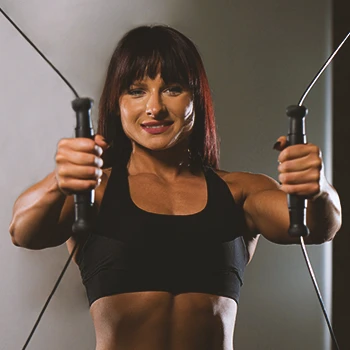
A cable machine is a must-have home gym equipment.
You need to replace home gym cables in machines when they show signs of wear and tear or when they have reached their recommended lifetime.
If you check the instructions and product details for any cable gym machine, you should find instructions about how long the cables are expected to last.
This time can vary for different thicknesses of cable, but there should be an indication in the documentation.
The good news is that a home gym won’t get anywhere near as much use as commercial equipment, and the cables should last you for well over ten years.
The other thing you should do is regularly check for signs of damage.
Let me show you how to do that.
4 Safety Tips for Cable Machines

Here are three things you should do if you have a cable machine in your garage gym.
1. Proper Installation
In my experience, ensuring proper installation of cables in your home gym is key. I've seen firsthand how improper setup can lead to accidents, so always follow the manufacturer's guidelines to maintain a safe workout space.
2. Regularly Check the Cables for Damage
As mentioned above, the steel wire cables in these machines typically have a black or transparent plastic covering.
You need to regularly check the entire cable for signs of damage, as you want to avoid constant steel-on-steel contact.
Also, check the hooks at the ends of the cables. According to the American Society of Mechanical Engineers, there is a lot of strain and pressure on these sections, and you don’t want them to snap in the middle of a rep [2].
This can produce falling weights, accelerating grips, and rapidly unloading muscles, all of which significantly increase the risk of serious injuries.
3. Pay Attention to Smooth Movements
Drawing from my coaching experience, a top-quality cable machine should always provide smooth movement.
If you feel any jolts or snags during a rep, it's often a sign of cable damage, something I always caution my clients to watch out for.
Anything but a smooth mechanism could become a safety risk, resulting in injuries.
4. Don’t Ignore Strange Noises
In my years as a health and performance coach, I've noticed that damaged cables often make unusual noises, like screeching or clanking, as they move through pulleys. It's a clear warning sign that shouldn't be ignored for safety.
This eventually may result cable snapping and falling weights, accelerating grips and rapidly unloading muscles, which is very dangerous for
“The cable machine is going to force you to stay in much better control than a barbell, dumbbell or kettlebell would.”
- Lindsay Bennet, Certified Personal Trainer
Related Articles:
FAQs
Is a Cable Machine Good for a Home Gym?
Yes, a cable machine is good for a home gym. It will give athletes a lot of different options to target all muscle groups with a relatively small piece of equipment.
How Can I Do Cable Workouts at Home?
You can do cable workouts at home with a cable or Smith machine. These types of gym machines combine free weight and cable pulley features, allowing you to do exercises that might normally require three or four different machines at a gym.
References:
- https://medicaldiagnostics.asmedigitalcollection.asme.org/IMECE/proceedings-abstract/IMECE2013/56444/V015T12A017/260019
About The Author
You May Also Like

